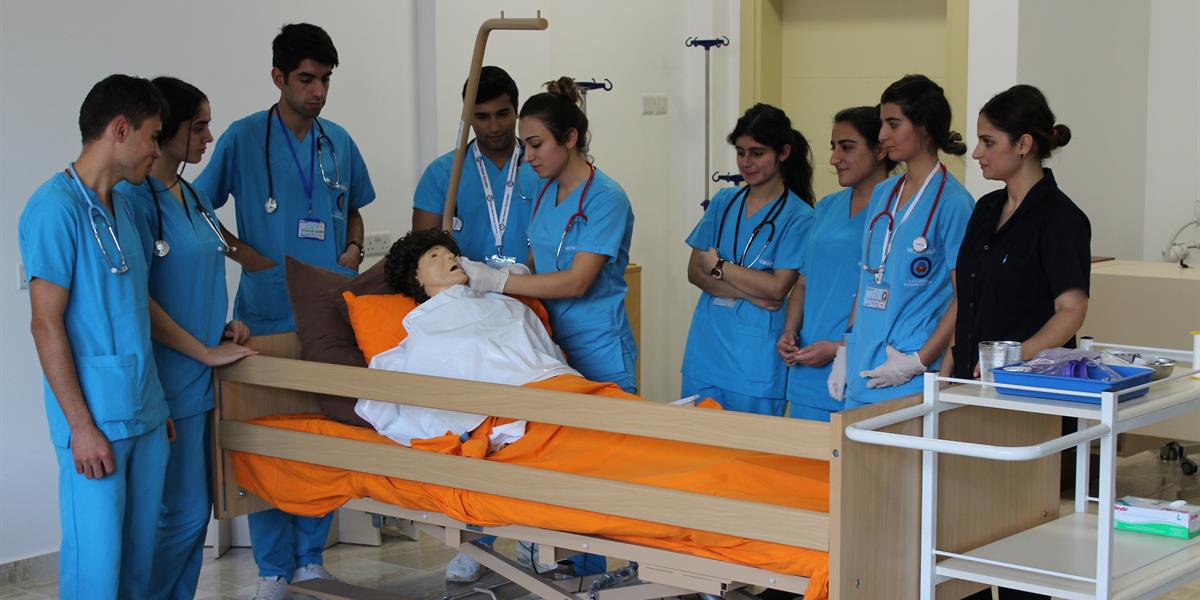
Department's Mission
Nursing is an art and a science dedicated to educating individuals in protecting people from diseases, improving the physical and psychological well-being of patients by delivering the health care instructed by the doctor and planning, applying and checking the patient care.
Our mission is to train health professionals, educators and researchers equipped with professional qualities such as problem solution, hard-work and protective skills. We aim to train our students to develop the health profession according to the country's needs, to gain professional information and skills in implementing medical health services successfully, to become creative individuals who will contribute to the global science, to act according to ethical values and to communicate effectively.
Departmental Facilities
Department of Nursing (DC-English Nursing Program) started education in 2017-2018.
Students of the Department of Nursing Care benefit from laboratories equipped with modern equipment at world standards. Each laboratory has been designed to provide opportunities for approximately 50 students to receive instruction at the same time. Our University provides sufficient number of computers with Internet connections for students. Students are also given the privilege of benefitting from the Eastern Mediterranean University Library which is equipped with modern facilities, equipment and databases. Our University also provides an array of recreational opportunities for our students in the form of social, cultural and sports activities.
Programs
Distinguishing Attributes
A collaboration protocol between Eastern Mediterranean University, Marmara University and Gazi University has been signed to equip each individual student with up-to-date information and modern technology and to train students in becoming responsible, innovative professionals with a vision and ethical/professional values. Through the collaboration protocol, EMU Department of Nursing Care graduates professionals who will take the initiative, continuously develop themselves and produce and implement newly produced information in their profession.
Regarding courses and internship opportunities, our Department also receives support from academicians who have become experts in their academic and professional fields at the most prominent universities in Turkey. A considerable number of collaboration protocols have been signed with various well-known health institutions in order to provide different opportunities for students in the area of internship. While getting ready for their profession, students at our University have a chance to express themselves with participation at international standards and by taking part in social and cultural activities.
Major Accomplishments
Student number who has applied to EMU Faculty of Health Sciences Nursing Department has raised more than fifty percent within a year and our first graduates are preferred by all corporations.
Quality of Graduates
Our department provides technological advanced laboratories to our students and they apply their clinical applications at those laboratories in which enhance their nursing education and give the chance to work in a real-like environment. Within the scope of Nursing Department, our students are educated by professional qualified academic personnel who have advanced clinical experiences and those qualities make our students more proficient.
Career Opportunities
Successful graduates of the program receive the title of “Nurse”. Graduates of the department may pursue employment opportunities at private or state hospitals as departmental nurses, department chief nurses, hospital chief nurses or director of nursing services. If they wish, graduates may also continue their education at a higher level and become associate professors or professors.
Contact Information
Address:
Eastern Mediterranean University
Faculty of Health Sciences
Department of Nursing
Famagusta, North Cyprus
Mersin 10 Turkey
